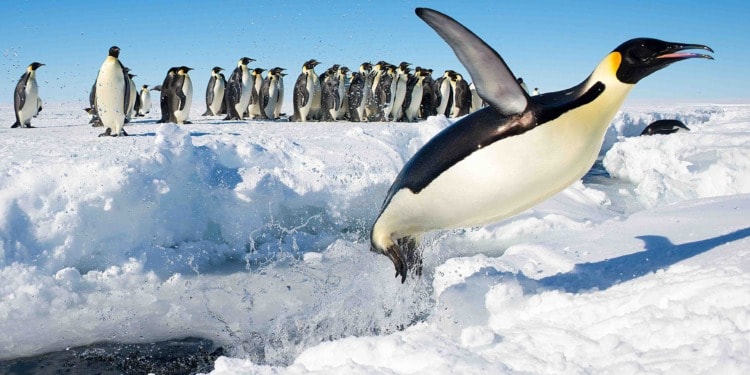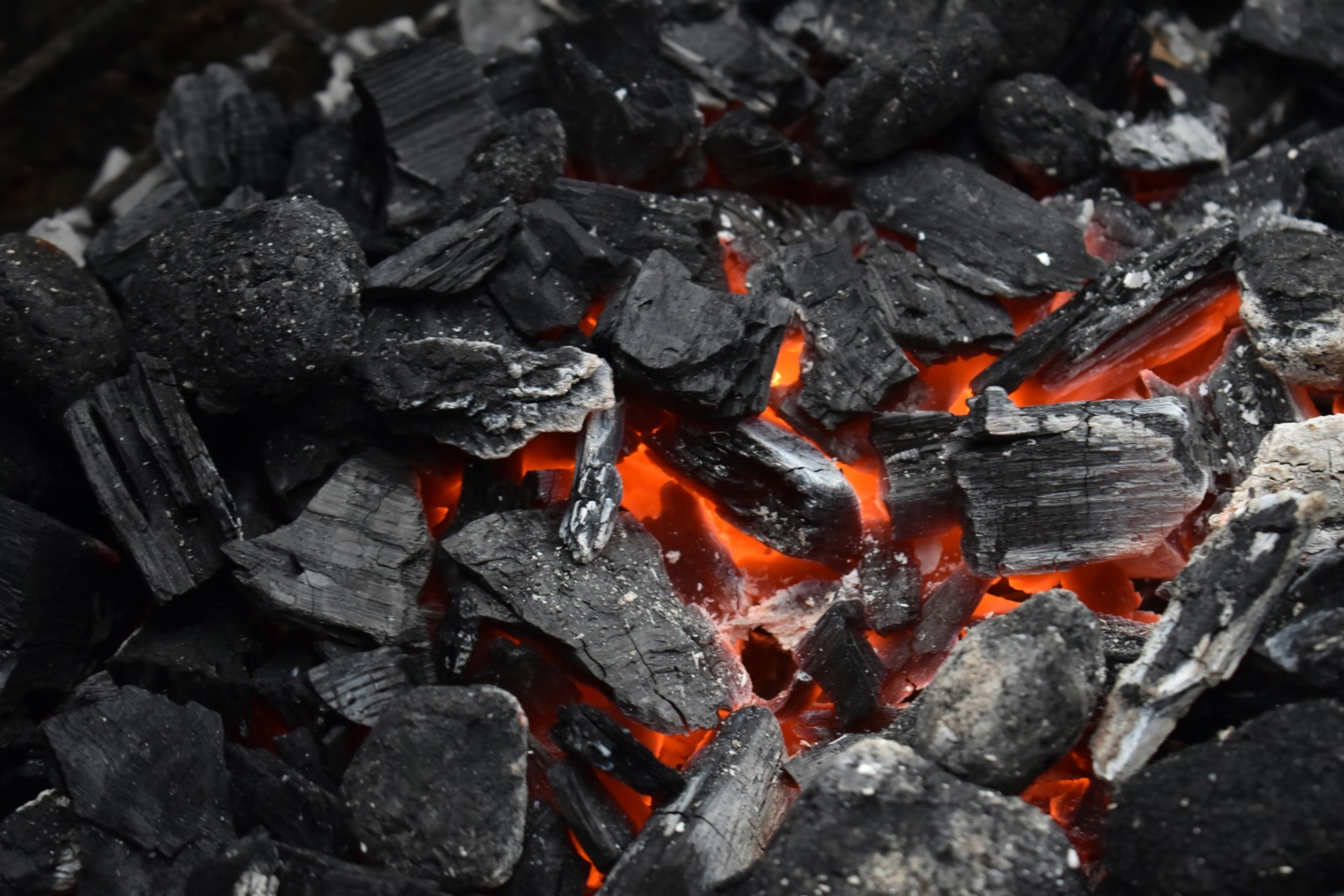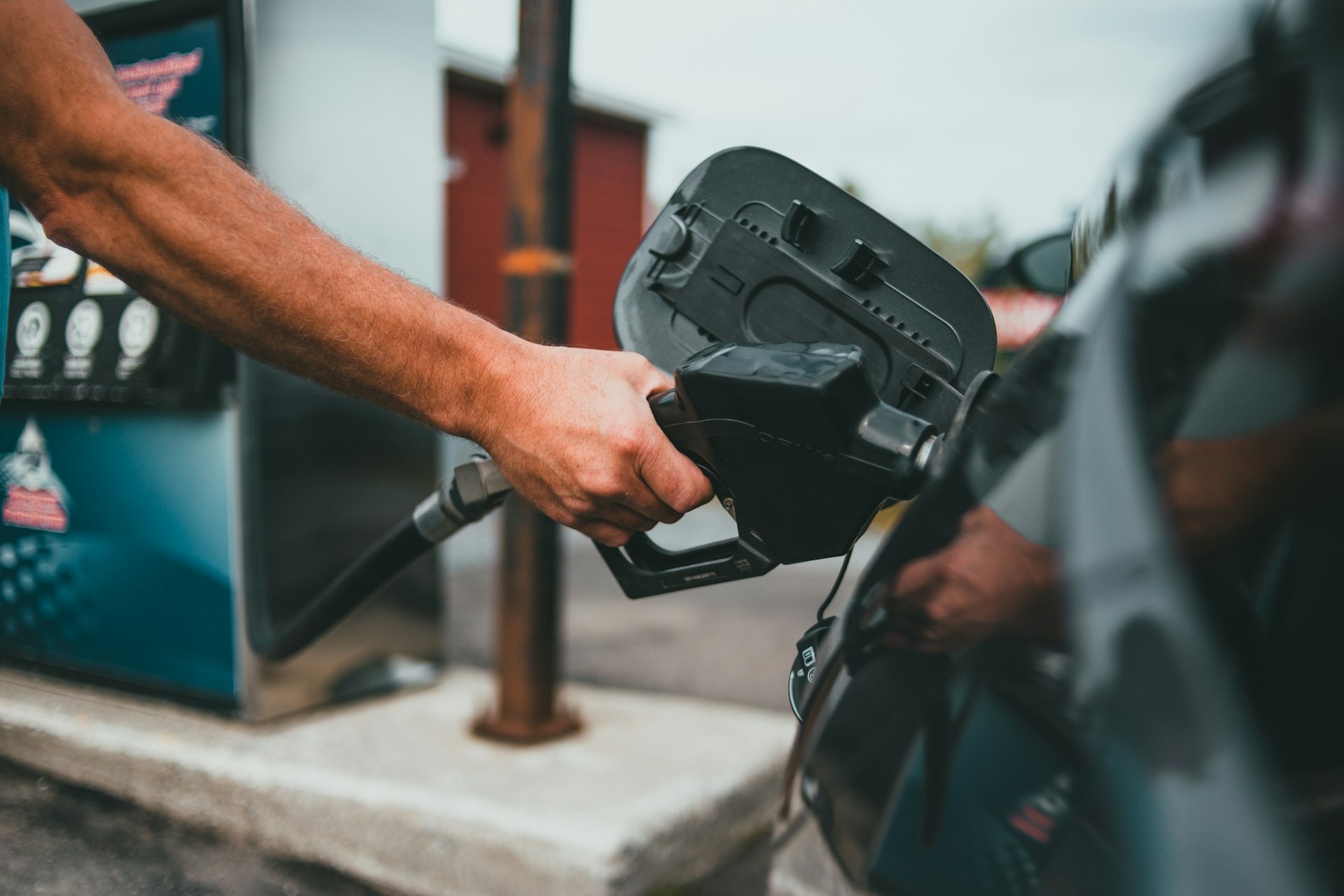It is no news that penguins in the Antarctic are struggling to cope with the changing climate. For reproduction purposes, emperor penguins strongly rely on “fast-ice” — the icy, flat surface that sticks to the continent.
They lay their eggs there and incubate them. It takes around 65 days for eggs to hatch, and when they do, the Emperor penguins raise their cubs of the fast-ice for almost a year.
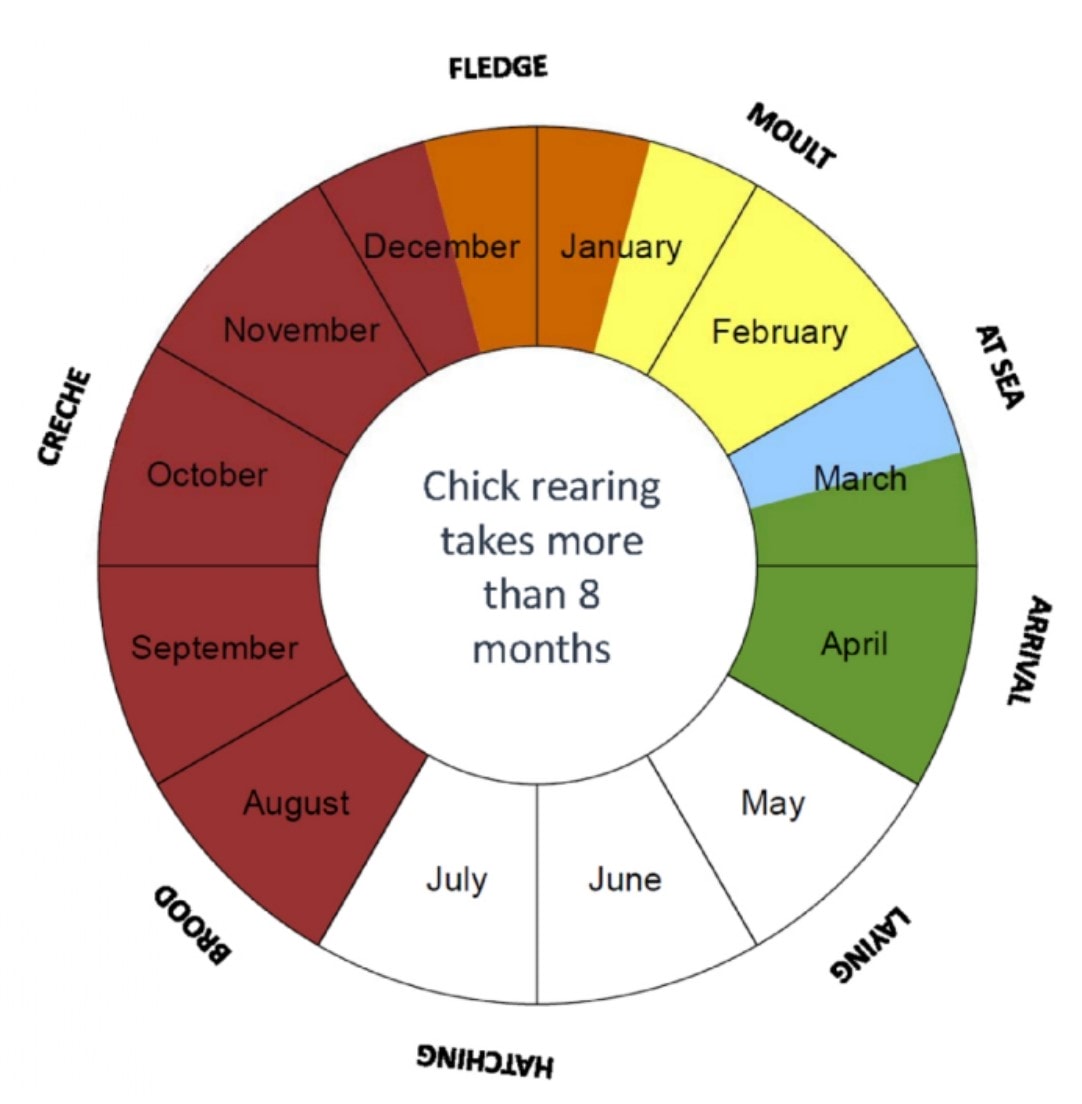
For the first period of their lives, chicks are not able to swim because they have not developed their distinctive slick feathers yet. This means that if the ice is not strong enough for the whole growth period, its consequent break can result in hundreds, if not thousands of premature deaths.
This is what happened last November in Antarctica.
Penguins’ Breeding Failure and Climate Change
Before 2016, it was believed that ice melting was a reality only for the polar north, whereas the southern ice seemed still strong and robust. However, these past six years have been proving us wrong.
Ever since 2016, scientists have been pointing out the recession of the Antarctic summer sea-ice, and 2021/22 and 2022/23 were the absolute worst years in terms of summer-ice melting since the satellite began recording its changes 45 years ago.
These variations culminated last winter, when abnormally high temperatures were registered in the Bellingshausen Sea, in Antarctica.
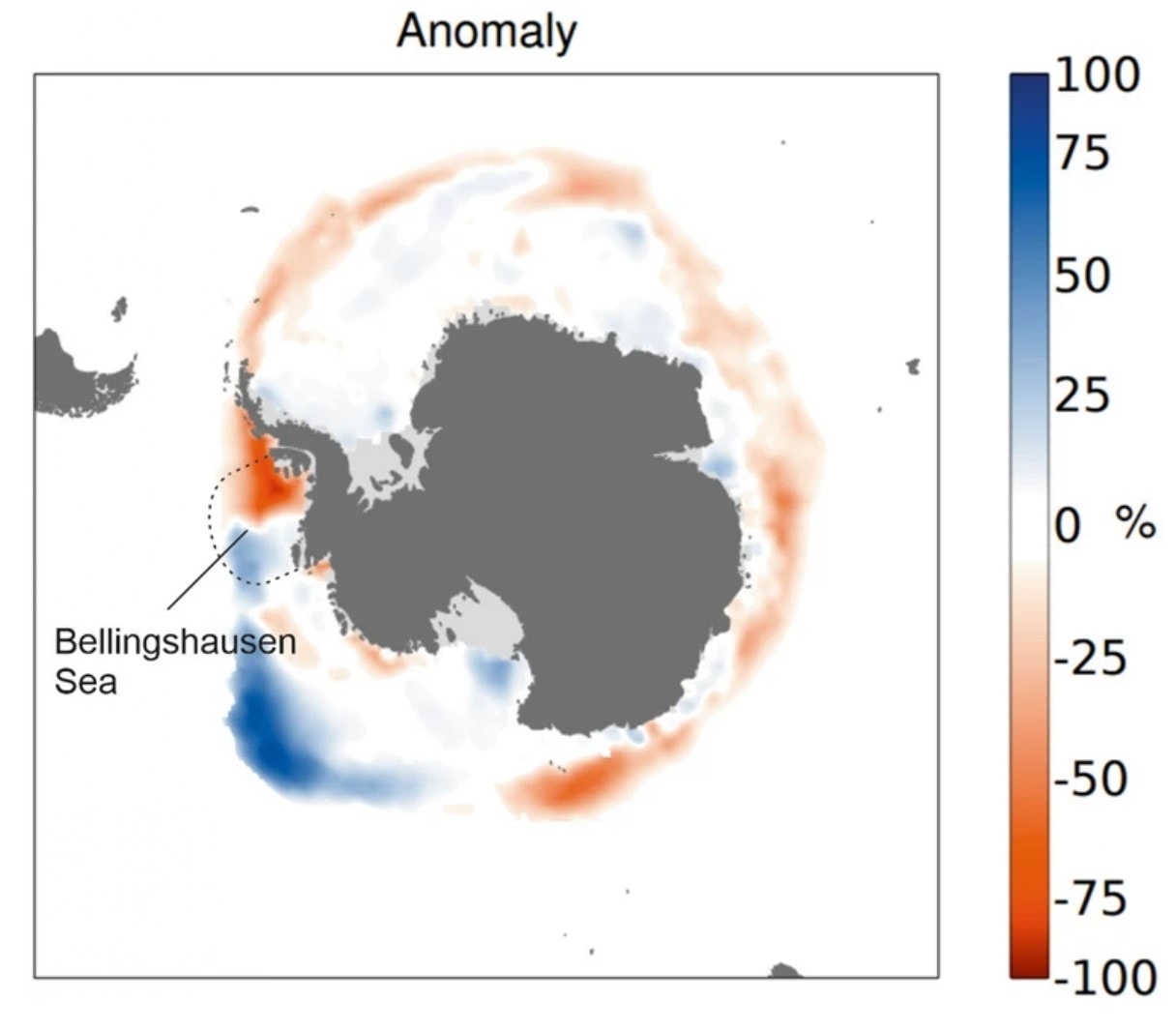
According to satellite images, in November 2022 as many as 10,000 baby emperor penguins died after the ice cover where they were being raised broke. Four out of the five colonies living and growing in that area were affected by the tragedy.
It was the first time emperor penguins were involved in a catastrophe this big. Because emperor penguins rely on fast-ice so much, if sea ice loss occurs, they move to a more resistant and stable area. If, however, global warming affects the whole region, this does not work.
Scientists at the British Antarctic Survey (BAS) were shocked at the scale of the disaster.
“We have never seen emperor penguins fail to breed, at this scale, in a single season. The loss of sea ice in this region during the Antarctic summer made it very unlikely that displaced chicks would survive,” declared Dr Peter Fretwell, the lead scientist of the BAS.
You’ve heard about Antarctic sea ice lows – well, here’s the consequences.
Over 9,000 emperor penguin chicks from colonies in the Bellingshausen Sea are thought to have died in November 2022.
The sea ice they lived on broke up early, before they'd developed waterproof feathers. pic.twitter.com/0A4J3as44a
— British Antarctic Survey 🐧 (@BAS_News) August 24, 2023
Acting to stop climate change could help.
“Studies in the Arctic have suggested that if we could reverse climate warming somehow, the sea-ice in the polar north would recover. Whether that might also apply in the Antarctic, we don’t know. But there’s every reason to think that if it got cold enough, the sea-ice would reform,” said Dr Caroline Holmes, Polar Climate Scientist at British Antarctic Survey, adding:
“Right now, in August 2023, the sea ice extent in Antarctica is still far below all previous records for this time of year. In this period where oceans are freezing up, we’re seeing areas that are still, remarkably, largely ice-free.”
Related Articles: Scramble for the Arctic: Is World War III Next? | Action for Antarctica: Saving the World’s Last Great Wilderness | With Antarctica Ice Shelf Melting Sea Levels To Rise By Several Feet
Studies show that, by 2100, emperor penguins might be extinct. But even if this event happened so far away from us, it does not mean it isn’t connected to us.
Our actions — how we choose to live, what we choose to buy, what we choose to eat — have massive impacts on the planet and on the animals. The tragedy of the baby penguins’ deaths last year is an example of it.
Even though many of those who are contributing the least to climate change are also the ones who are suffering the most, there is a stark difference between animals and humans. Animals are not perpetrating the negative actions that are known to worsen the climate crisis. They are just living, adapting, maybe even surviving — and they do not have the means to protect themselves.
Global warming is destroying the planet. But this is the only planet we have. We must do something about it, and we must do it quickly.
Editor’s Note: The opinions expressed here by the authors are their own, not those of Impakter.com — In the Featured Photo: An Emperor Penguin in Antarctica jumping out of the water. Featured Photo Credit:
Christopher Michel.


